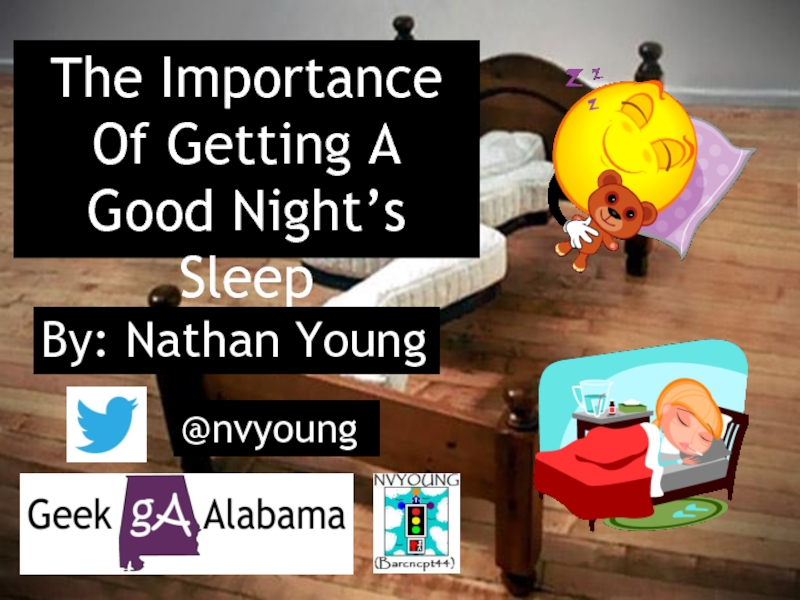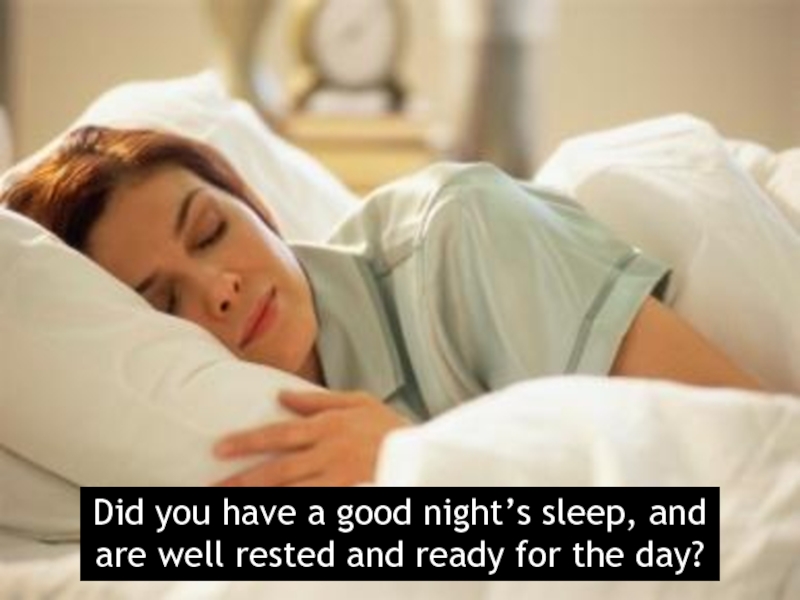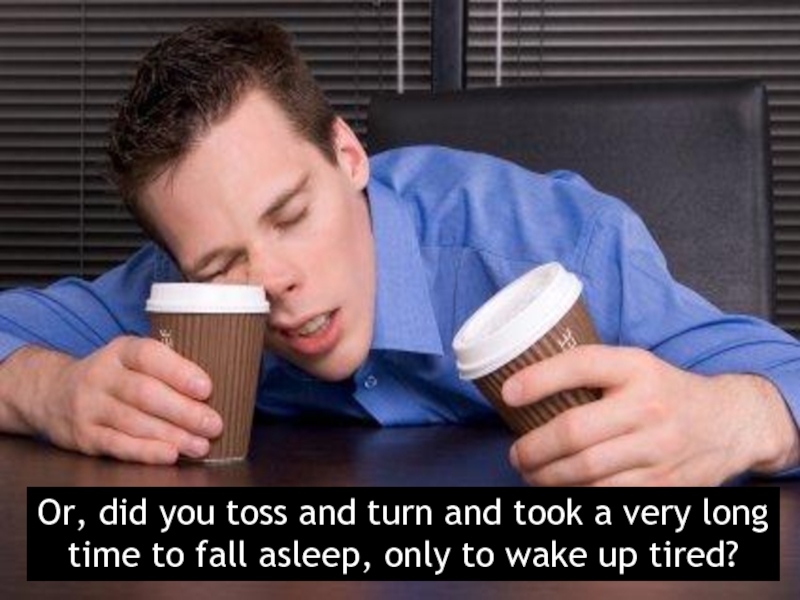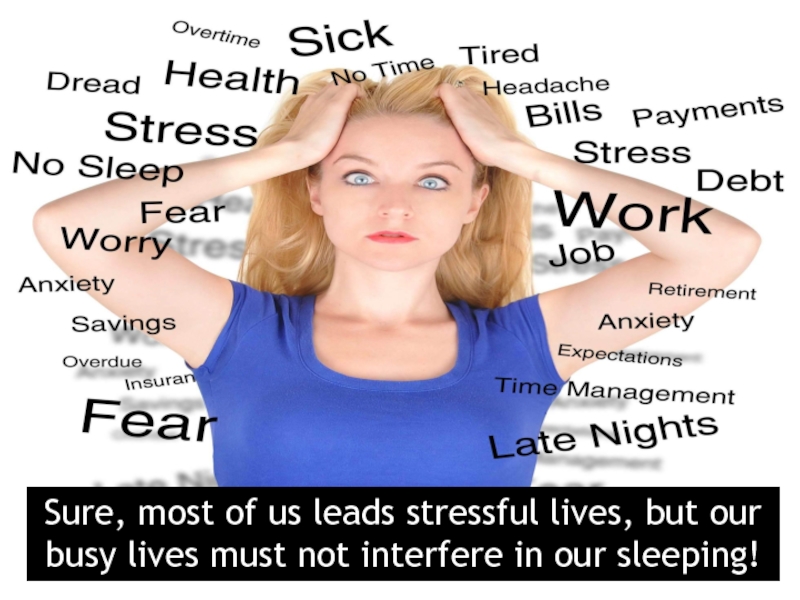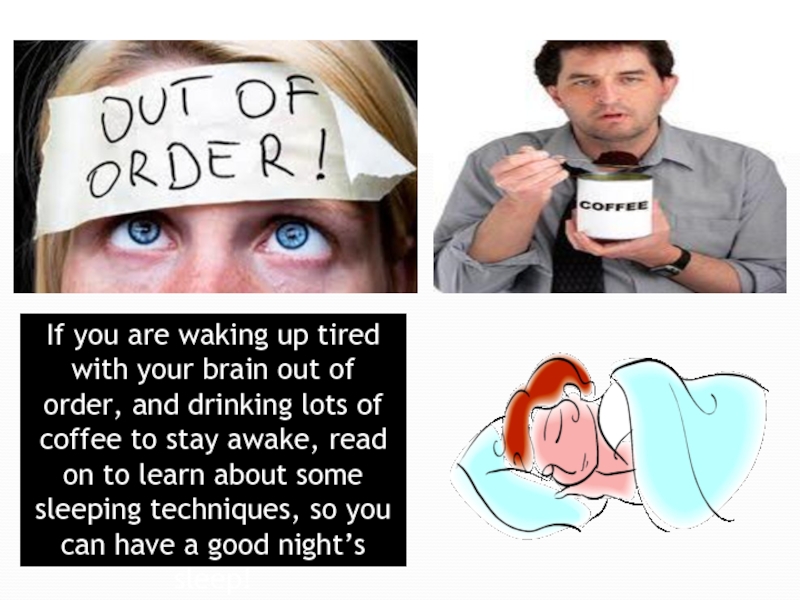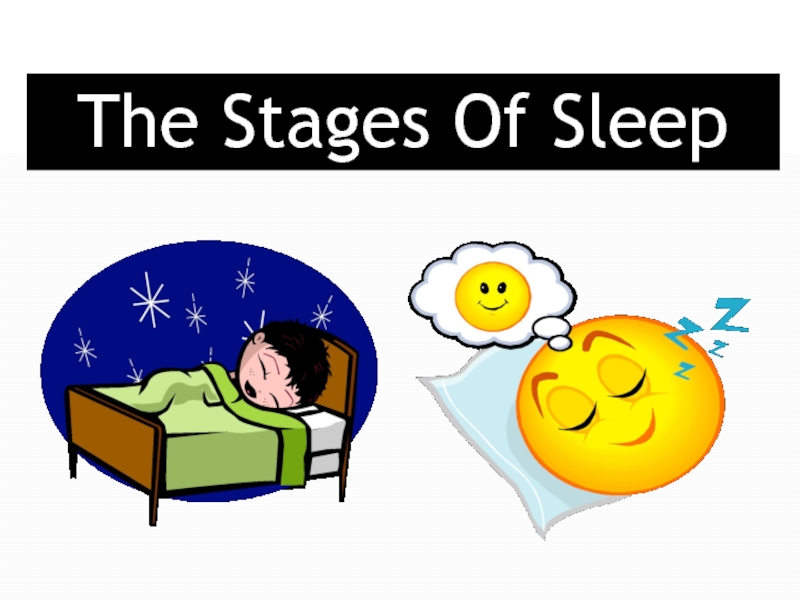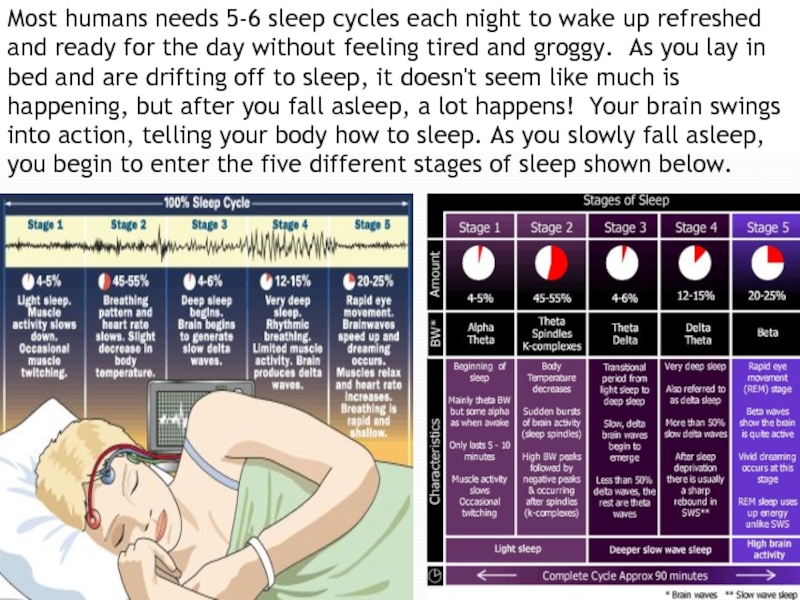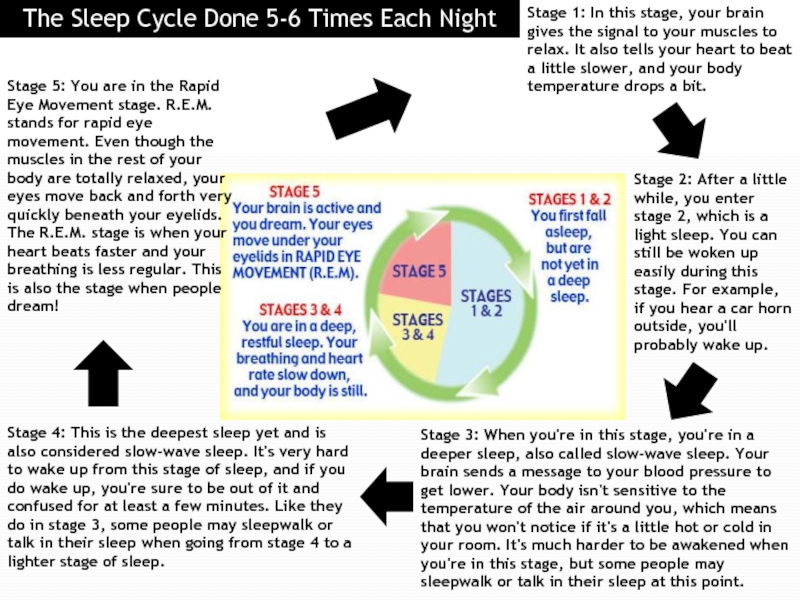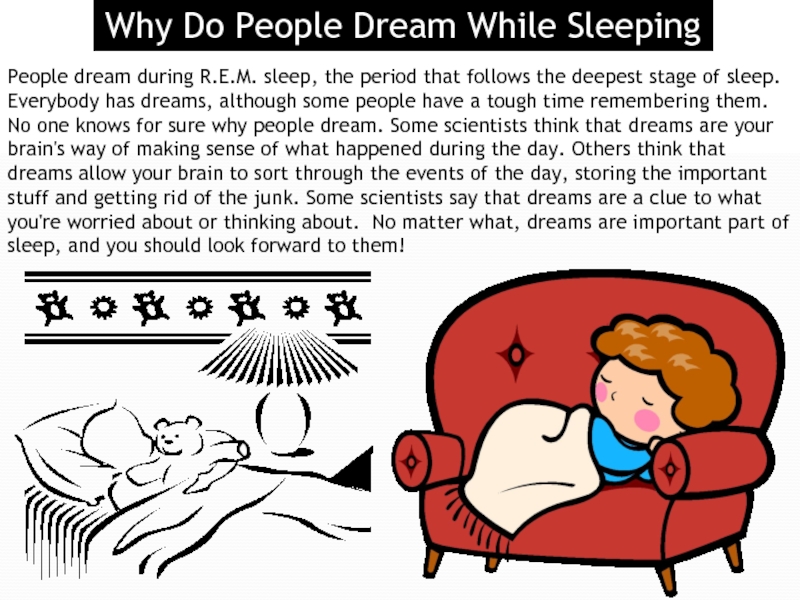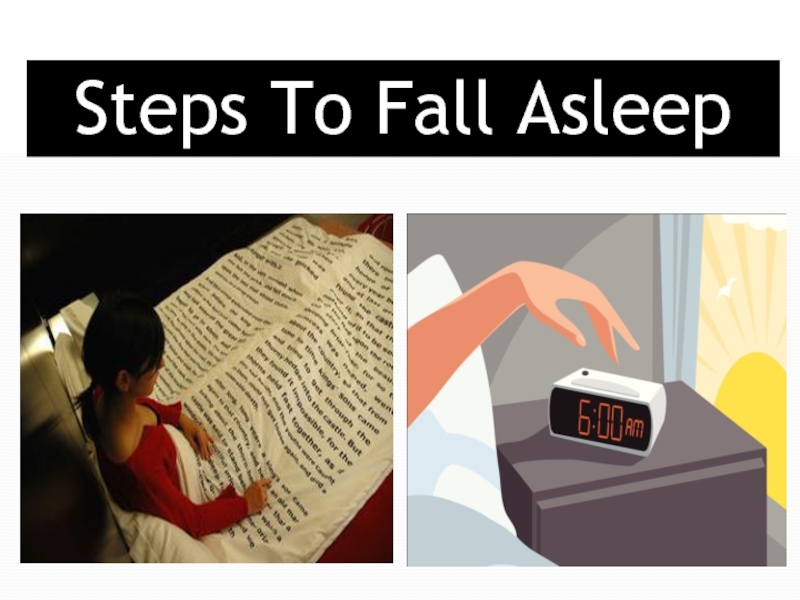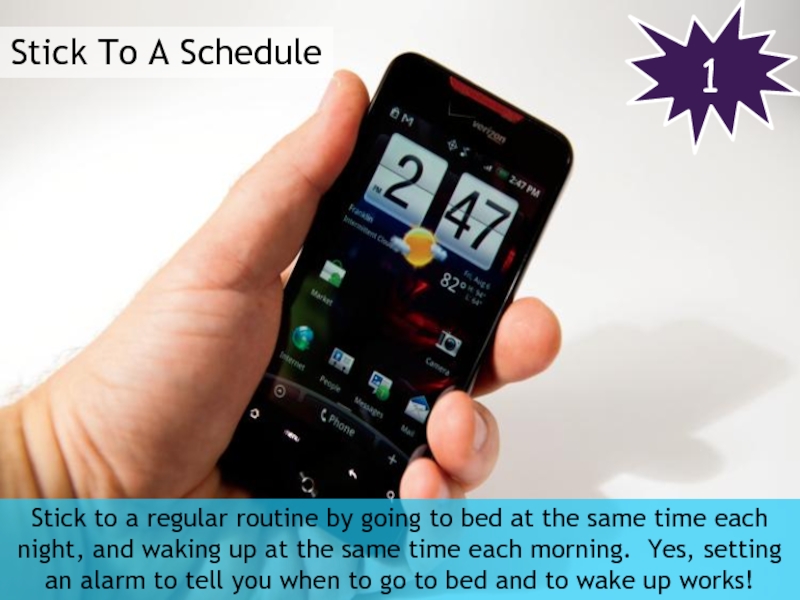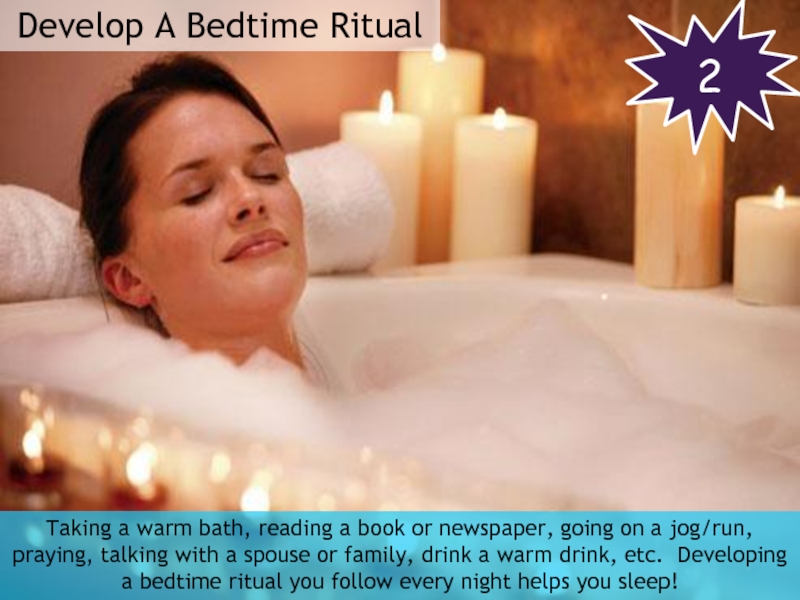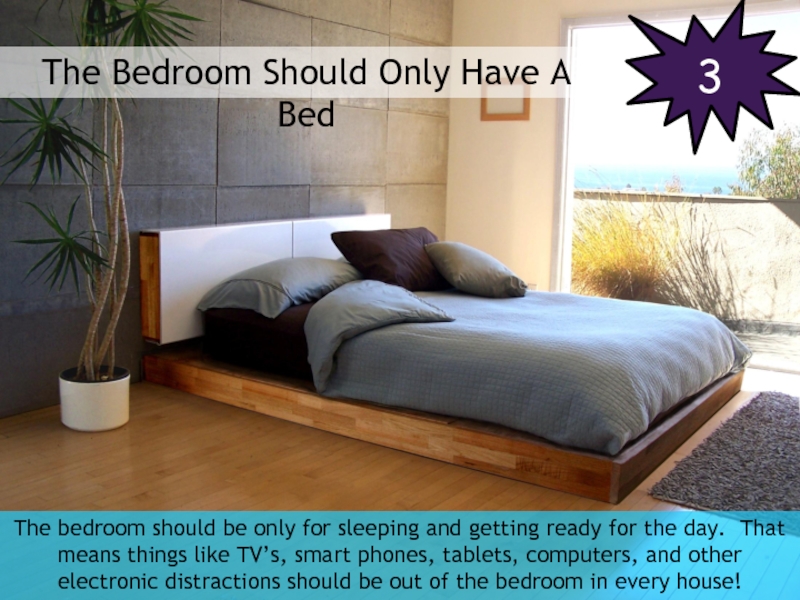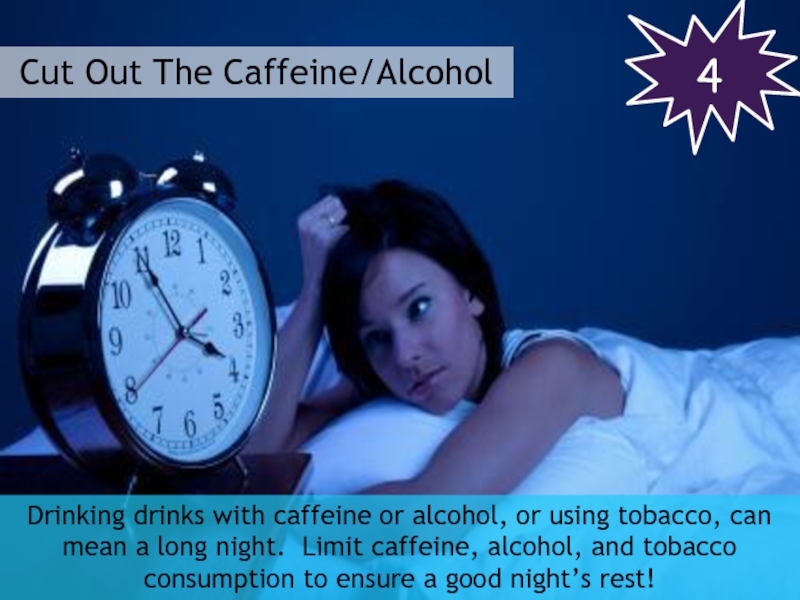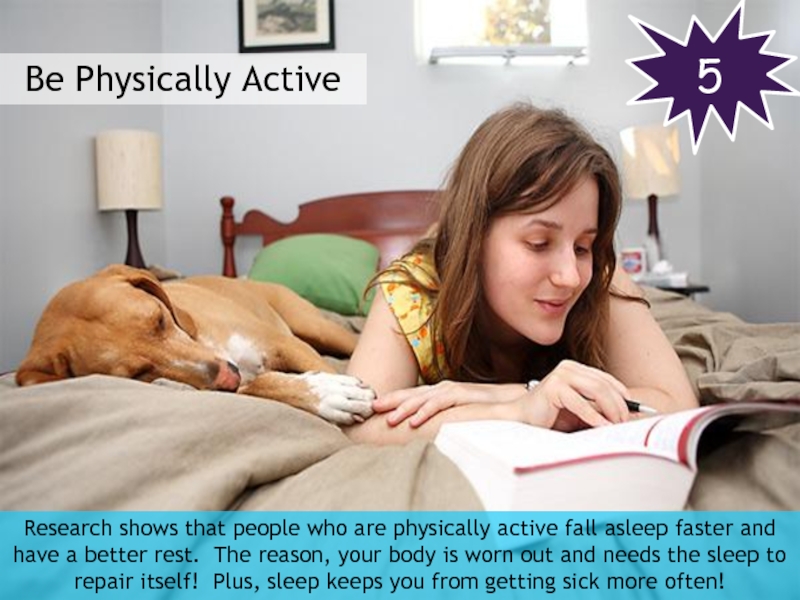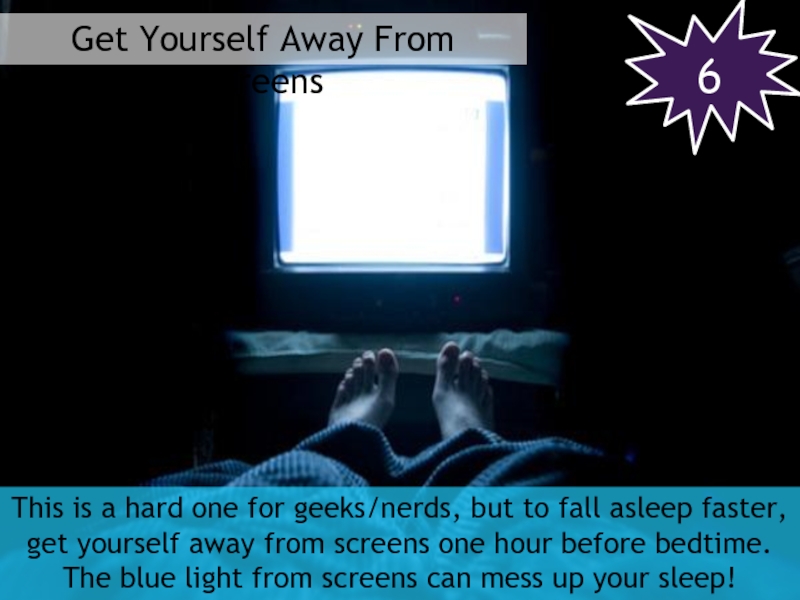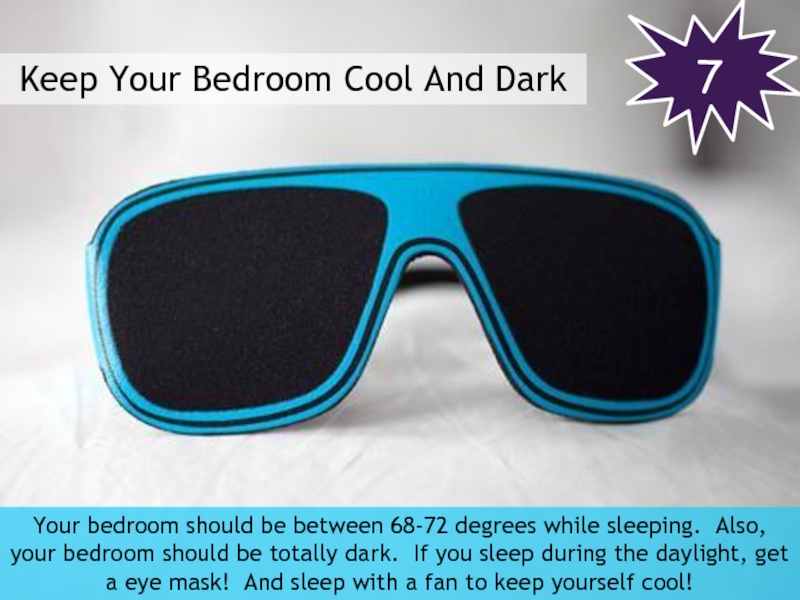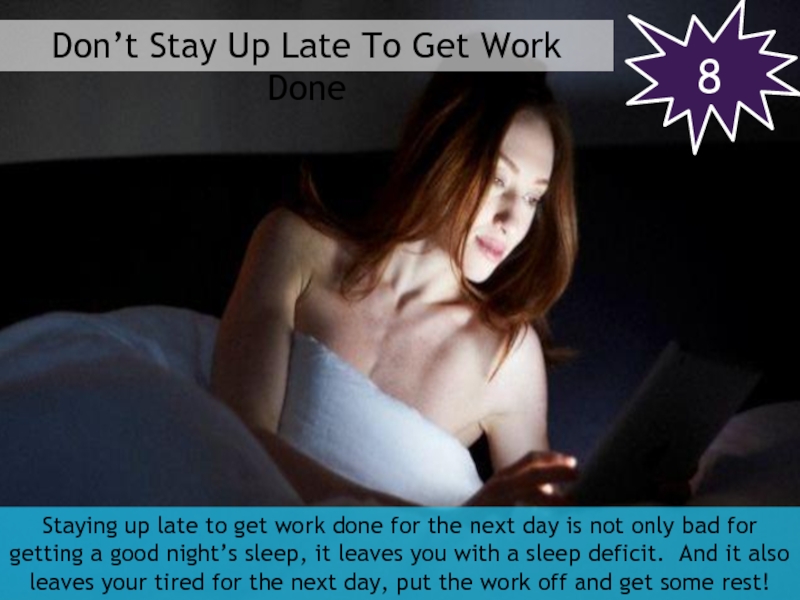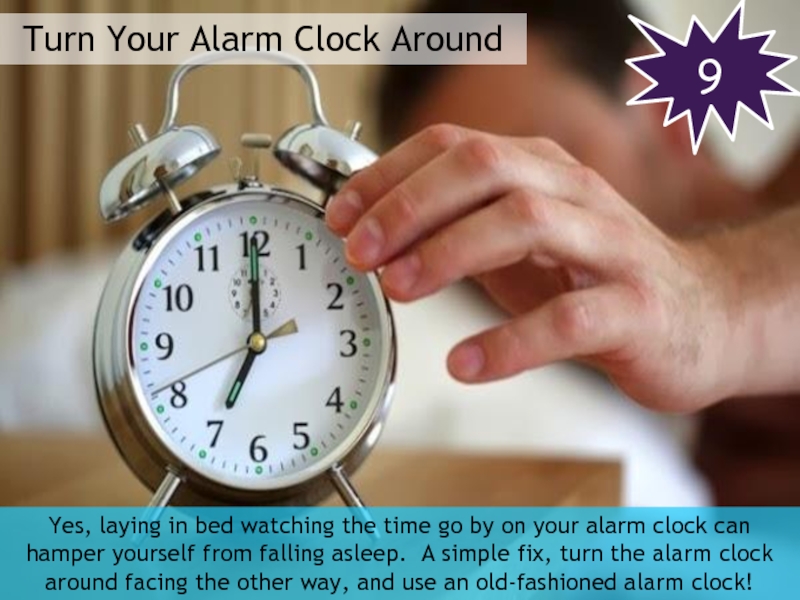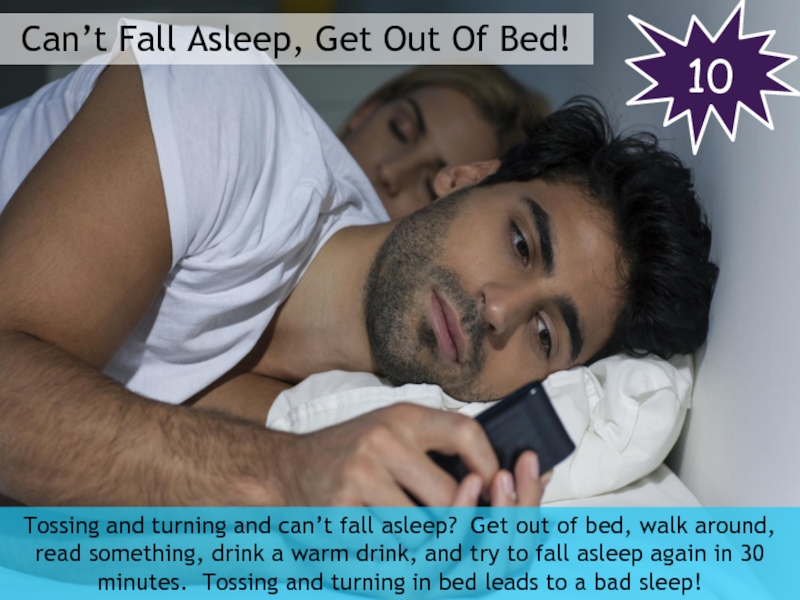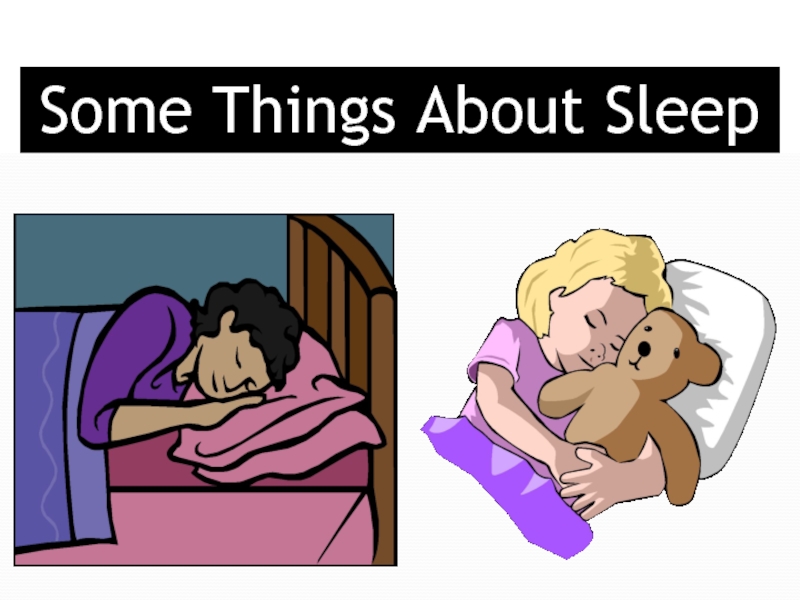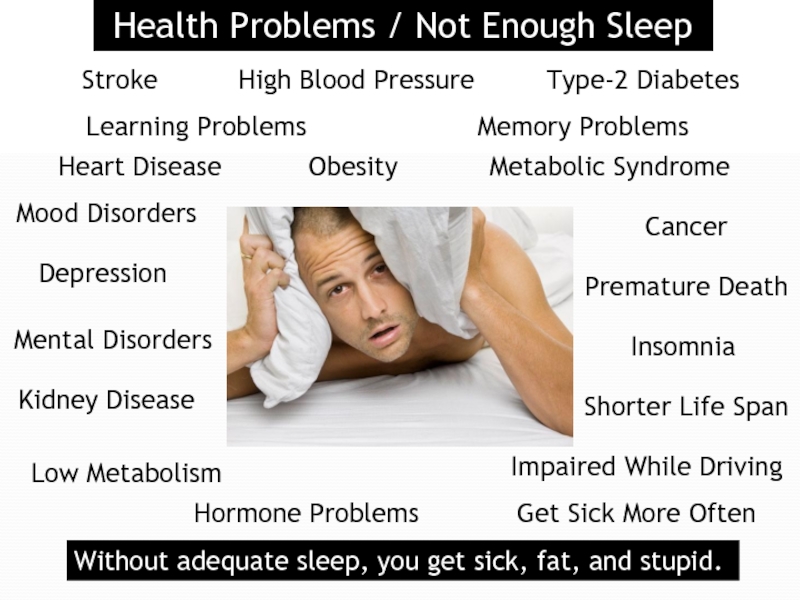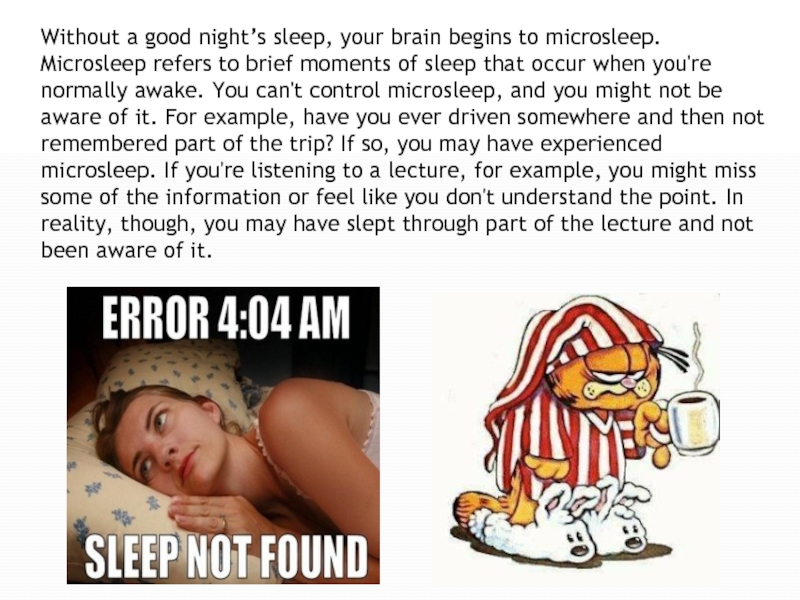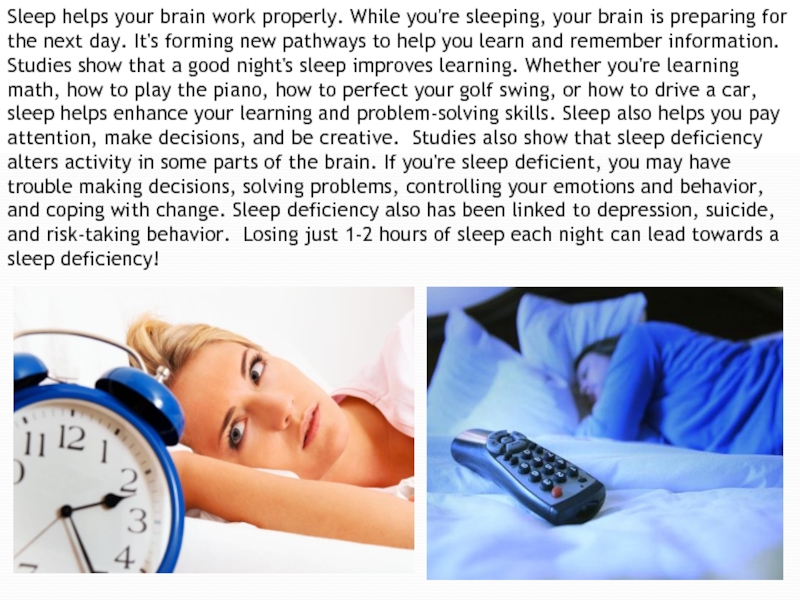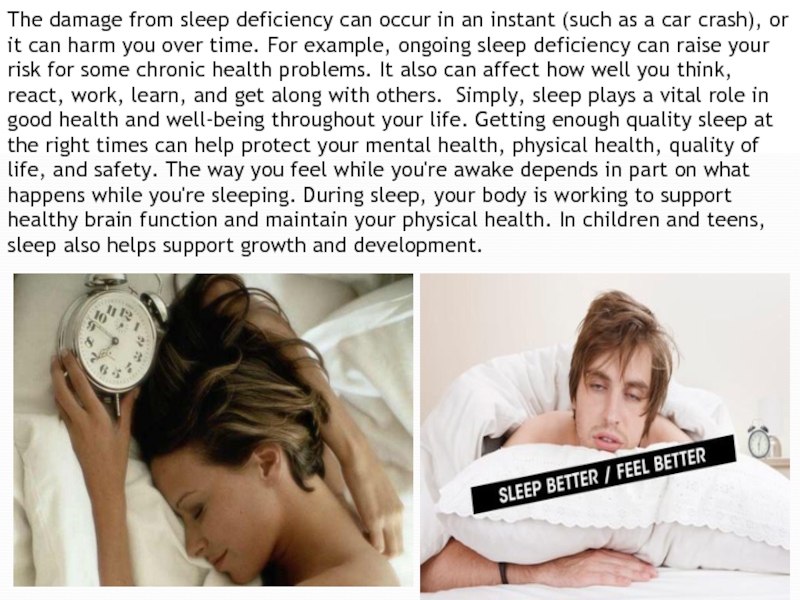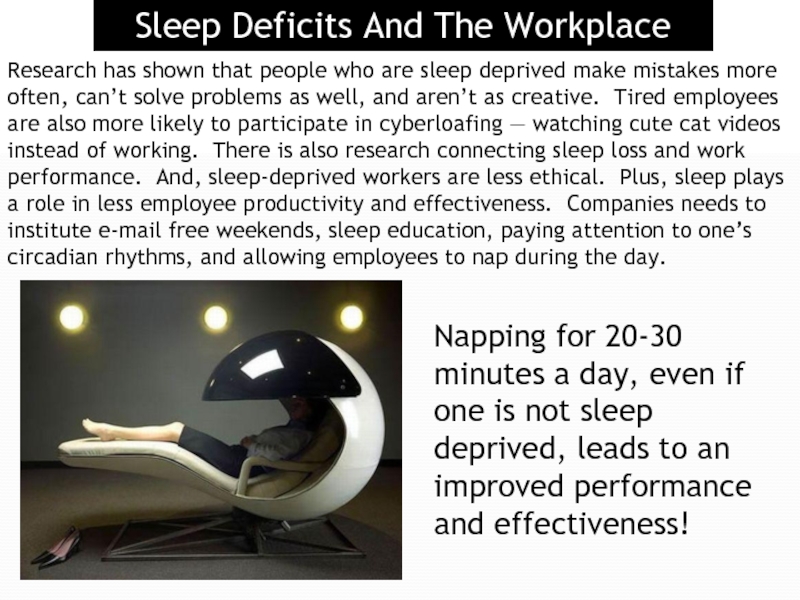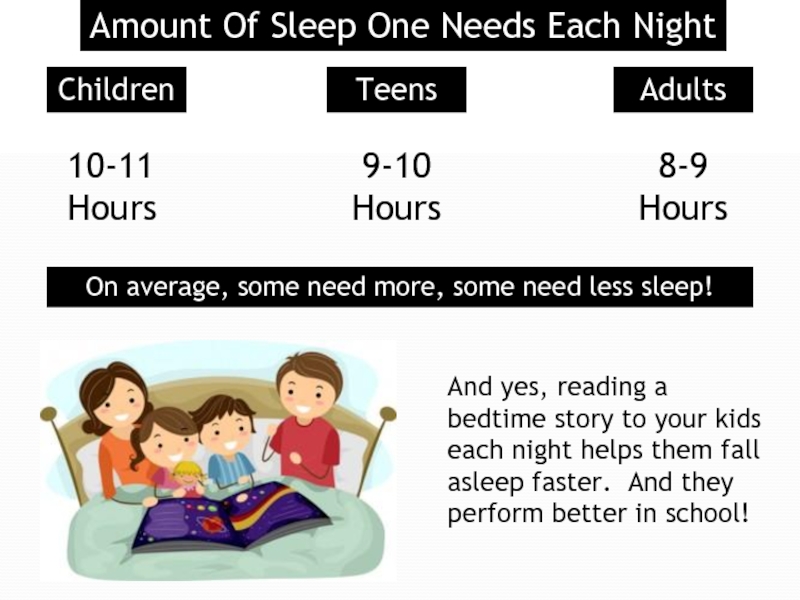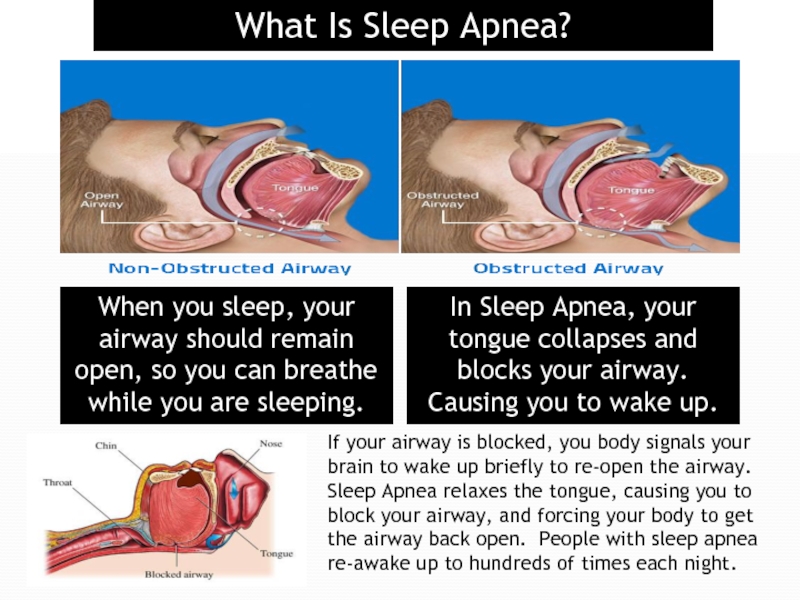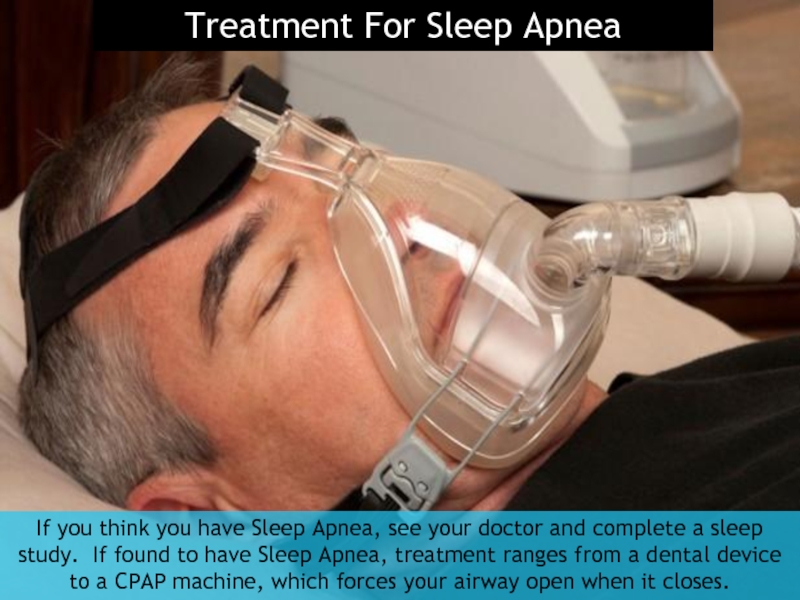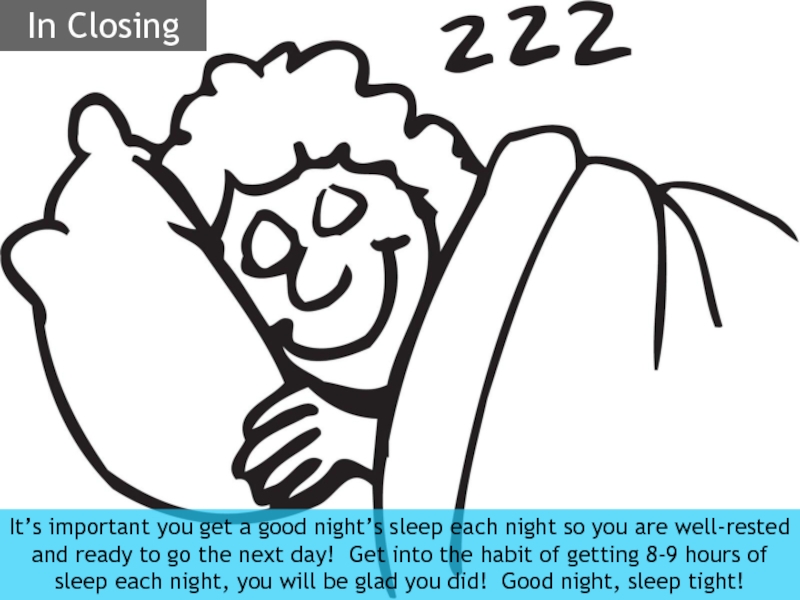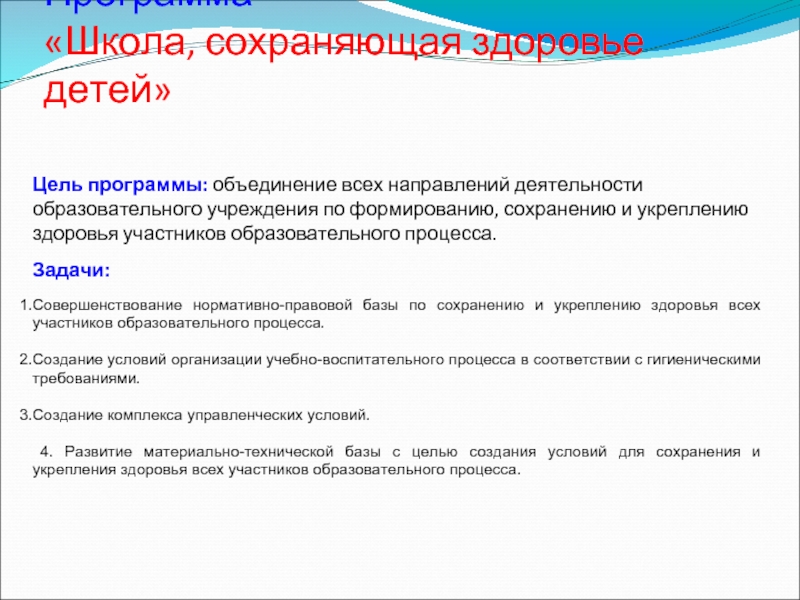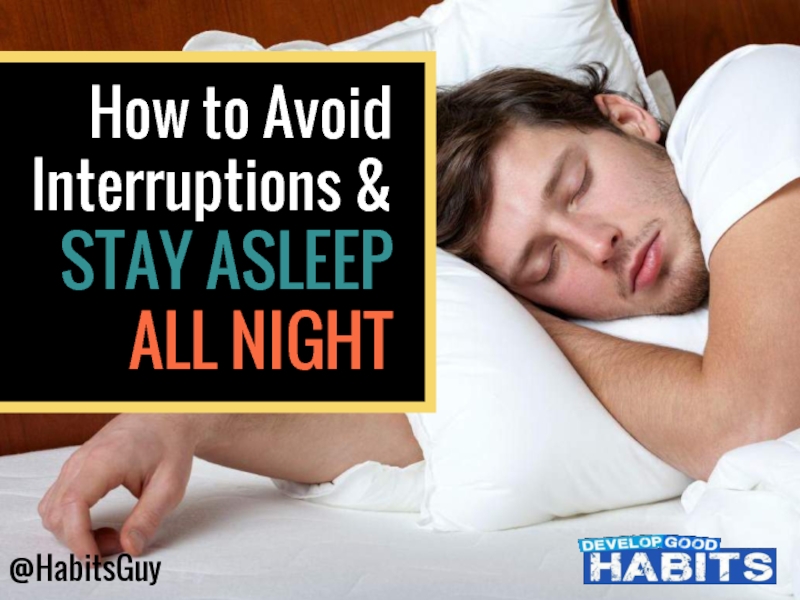- Главная
- Разное
- Дизайн
- Бизнес и предпринимательство
- Аналитика
- Образование
- Развлечения
- Красота и здоровье
- Финансы
- Государство
- Путешествия
- Спорт
- Недвижимость
- Армия
- Графика
- Культурология
- Еда и кулинария
- Лингвистика
- Английский язык
- Астрономия
- Алгебра
- Биология
- География
- Детские презентации
- Информатика
- История
- Литература
- Маркетинг
- Математика
- Медицина
- Менеджмент
- Музыка
- МХК
- Немецкий язык
- ОБЖ
- Обществознание
- Окружающий мир
- Педагогика
- Русский язык
- Технология
- Физика
- Философия
- Химия
- Шаблоны, картинки для презентаций
- Экология
- Экономика
- Юриспруденция
The Importance Of Getting A Good Night's Sleep презентация
Содержание
- 2. Did you have a good
- 3. Or, did you toss and
- 4. Sure, most of us leads
- 5. If you are waking up
- 6. The Stages Of Sleep
- 7. Most humans needs 5-6 sleep
- 8. Stage 1: In this stage,
- 9. 1 People dream during R.E.M.
- 10. 2 Steps To Fall Asleep
- 11. Stick To A Schedule 1
- 12. Develop A Bedtime Ritual 2
- 13. The Bedroom Should Only Have A
- 14. Cut Out The Caffeine/Alcohol
- 15. Be Physically Active 5 Research
- 16. Get Yourself Away From Screens
- 17. Keep Your Bedroom Cool And Dark
- 18. Don’t Stay Up Late To Get
- 19. Turn Your Alarm Clock Around
- 20. Can’t Fall Asleep, Get Out Of
- 21. 2 Some Things About Sleep
- 22. 3 Health Problems / Not
- 23. 3 Without a good night’s
- 24. 3 Sleep helps your brain
- 25. 3 The damage from sleep
- 26. 3 Sleep Deficits And The
- 27. 3 Amount Of Sleep One
- 28. Sleep Apnea Is Very Dangerous! Do
- 29. What Is Sleep Apnea? When
- 30. Treatment For Sleep Apnea If you
- 31. Bottomline, Sleep Is Important Most
- 32. It’s important you get a good night’s
Слайд 4
Sure, most of us leads stressful lives, but our busy lives
Слайд 5
If you are waking up tired with your brain out of
Слайд 7
Most humans needs 5-6 sleep cycles each night to wake up
Слайд 8
Stage 1: In this stage, your brain gives the signal to
Stage 2: After a little while, you enter stage 2, which is a light sleep. You can still be woken up easily during this stage. For example, if you hear a car horn outside, you'll probably wake up.
Stage 3: When you're in this stage, you're in a deeper sleep, also called slow-wave sleep. Your brain sends a message to your blood pressure to get lower. Your body isn't sensitive to the temperature of the air around you, which means that you won't notice if it's a little hot or cold in your room. It's much harder to be awakened when you're in this stage, but some people may sleepwalk or talk in their sleep at this point.
Stage 4: This is the deepest sleep yet and is also considered slow-wave sleep. It's very hard to wake up from this stage of sleep, and if you do wake up, you're sure to be out of it and confused for at least a few minutes. Like they do in stage 3, some people may sleepwalk or talk in their sleep when going from stage 4 to a lighter stage of sleep.
Stage 5: You are in the Rapid Eye Movement stage. R.E.M. stands for rapid eye movement. Even though the muscles in the rest of your body are totally relaxed, your eyes move back and forth very quickly beneath your eyelids. The R.E.M. stage is when your heart beats faster and your breathing is less regular. This is also the stage when people dream!
The Sleep Cycle Done 5-6 Times Each Night
Слайд 9
1
People dream during R.E.M. sleep, the period that follows the deepest
Why Do People Dream While Sleeping
Слайд 11
Stick To A Schedule
1
Stick to a regular routine by going to
Слайд 12
Develop A Bedtime Ritual
2
Taking a warm bath, reading a book or
Слайд 13
The Bedroom Should Only Have A Bed
3
The bedroom should be only
Слайд 14
Cut Out The Caffeine/Alcohol
4
Drinking drinks with caffeine or alcohol, or
Слайд 15
Be Physically Active
5
Research shows that people who are physically active fall
Слайд 16
Get Yourself Away From Screens
6
This is a hard one for geeks/nerds,
Слайд 17
Keep Your Bedroom Cool And Dark
7
Your bedroom should be between 68-72
Слайд 18
Don’t Stay Up Late To Get Work Done
8
Staying up late to
Слайд 19
Turn Your Alarm Clock Around
9
Yes, laying in bed watching the time
Слайд 20
Can’t Fall Asleep, Get Out Of Bed!
10
Tossing and turning and can’t
Слайд 22
3
Health Problems / Not Enough Sleep
Impaired While Driving
Obesity
Type-2 Diabetes
Cancer
Low Metabolism
Heart Disease
Metabolic
Get Sick More Often
High Blood Pressure
Mood Disorders
Depression
Mental Disorders
Insomnia
Shorter Life Span
Premature Death
Learning Problems
Memory Problems
Without adequate sleep, you get sick, fat, and stupid.
Kidney Disease
Stroke
Hormone Problems
Слайд 23
3
Without a good night’s sleep, your brain begins to microsleep. Microsleep
Слайд 24
3
Sleep helps your brain work properly. While you're sleeping, your brain
Слайд 25
3
The damage from sleep deficiency can occur in an instant (such
Слайд 26
3
Sleep Deficits And The Workplace
Research has shown that people who are
Napping for 20-30 minutes a day, even if one is not sleep deprived, leads to an improved performance and effectiveness!
Слайд 27
3
Amount Of Sleep One Needs Each Night
Children
Teens
Adults
10-11 Hours
9-10 Hours
8-9 Hours
And yes,
On average, some need more, some need less sleep!
Слайд 28
Sleep Apnea Is Very Dangerous!
Do you snore, or do you know
Слайд 29
What Is Sleep Apnea?
When you sleep, your airway should remain open,
In Sleep Apnea, your tongue collapses and blocks your airway. Causing you to wake up.
If your airway is blocked, you body signals your brain to wake up briefly to re-open the airway. Sleep Apnea relaxes the tongue, causing you to block your airway, and forcing your body to get the airway back open. People with sleep apnea re-awake up to hundreds of times each night.
Слайд 30
Treatment For Sleep Apnea
If you think you have Sleep Apnea, see
Слайд 31
Bottomline, Sleep Is Important
Most research shows that we don’t get enough
“Each day has enough trouble of its own,” -Jesus
Слайд 32It’s important you get a good night’s sleep each night so
In Closing
